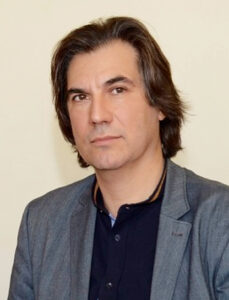Today’s civilizations face a number of significant sustainability challenges, including climate change, poverty, affordable renewable energy, and other issues encapsulated in the United Nations’ Sustainable Development Goals. The University of West Attica’s new MSc in Circular Economy and Sustainability Strategies seeks to prepare graduates to contribute toward addressing these challenges through the application of circular economy principles in today’s industrial environments.
 The use of resources and its environmental consequences are high on the political agenda, with the European Union releasing its Circular Economy Action Plan, which aims to profoundly transform society’s metabolism, and the G7 also supporting the transition to a low-carbon and circular economy. Meeting these challenges necessitates well-educated individuals who can think holistically and interdisciplinarily, assess and model the consequences of anthropogenic interventions in the biosphere, and strive to implement measures to mitigate and reduce humanity’s impact on the environment while ensuring access to resources. The circular economy is a multidisciplinary study subject that addresses all of the aforementioned sustainability concerns holistically, using a variety of concepts, tools, and approaches.
The use of resources and its environmental consequences are high on the political agenda, with the European Union releasing its Circular Economy Action Plan, which aims to profoundly transform society’s metabolism, and the G7 also supporting the transition to a low-carbon and circular economy. Meeting these challenges necessitates well-educated individuals who can think holistically and interdisciplinarily, assess and model the consequences of anthropogenic interventions in the biosphere, and strive to implement measures to mitigate and reduce humanity’s impact on the environment while ensuring access to resources. The circular economy is a multidisciplinary study subject that addresses all of the aforementioned sustainability concerns holistically, using a variety of concepts, tools, and approaches.
The circular economy is a production and consumption model that emphasizes sharing, leasing, reusing, repairing, refurbishing, and recycling existing materials and products for as long as feasible. In this manner, the product life cycle is prolonged. In practice, it entails minimizing refuse production. When a product reaches the end of its useful life, recycling keeps its materials within the economy whenever possible. These can be utilized repeatedly, thereby generating additional value. This is a departure from the conventional, linear economic model, which is founded on the pattern of take-make-consume-throw away. This model relies on large quantities of cheap, readily accessible materials and energy. Also included in this model is planned obsolescence, which occurs when a product is created with a limited duration in order to encourage consumers to purchase it again. The European Parliament has demanded action against this practice.
In this context, the Department of Industrial Design and Production Engineering of the University of West Attica is this year launching the MSc in Circular Economy and Sustainability Strategies, a new and innovative postgraduate program taught entirely in English. Designed to be delivered mainly as a distance learning course, the program aims to offer participants a thorough understanding of the concepts and contexts of the circular economy and to provide practical perspectives on how they work, examining cyclic design and business model approaches and how these are implemented and scaled across different industries and different sections of the value chain. The program’s ultimate goal is to equip graduates with a strong theoretical and practical understanding of circular economics and processes in various industrial chains, allowing them to assess, analyze and overcome the challenges in implementing circular economy practices, including in relation to technology, cooperation, and design. Equipped with such a thorough knowledge of the trends and levers of the circular economy, graduates will understand how they can be designed and implemented in industrial value chains to help address environmental and social challenges, contributing toward the UN’s Sustainable Development Goals.
Find out more about the new MSc in Circular Economy and Sustainability Strategies at https://msc-circular.uniwa.gr/.





